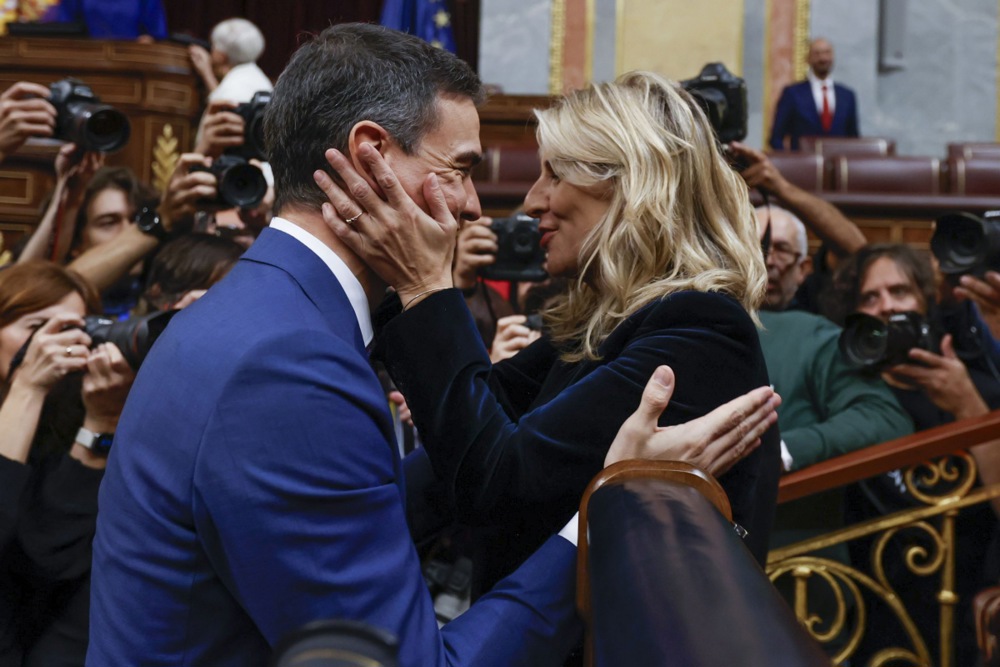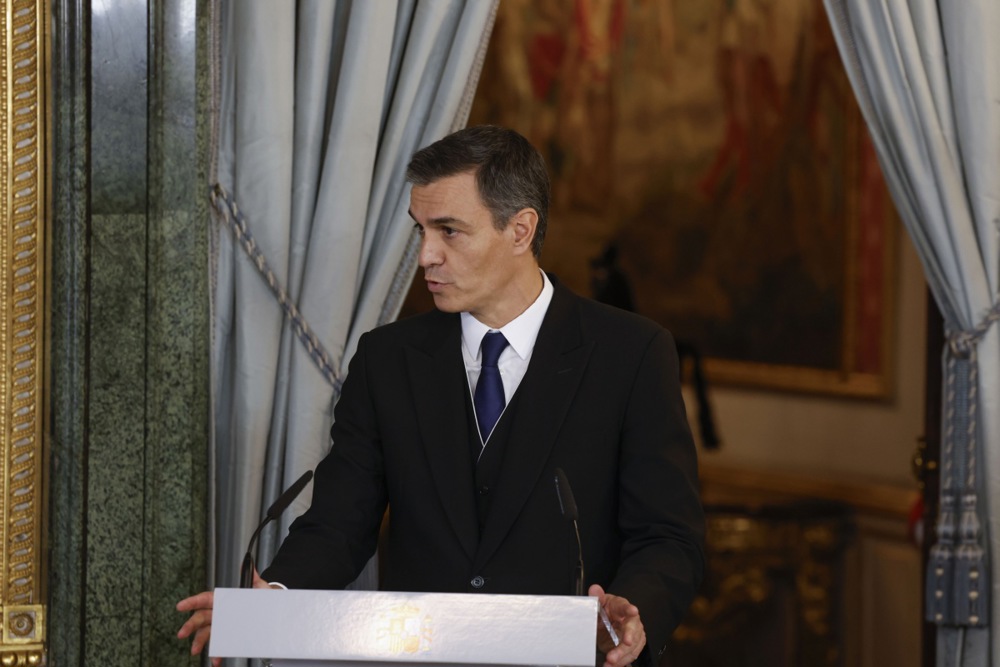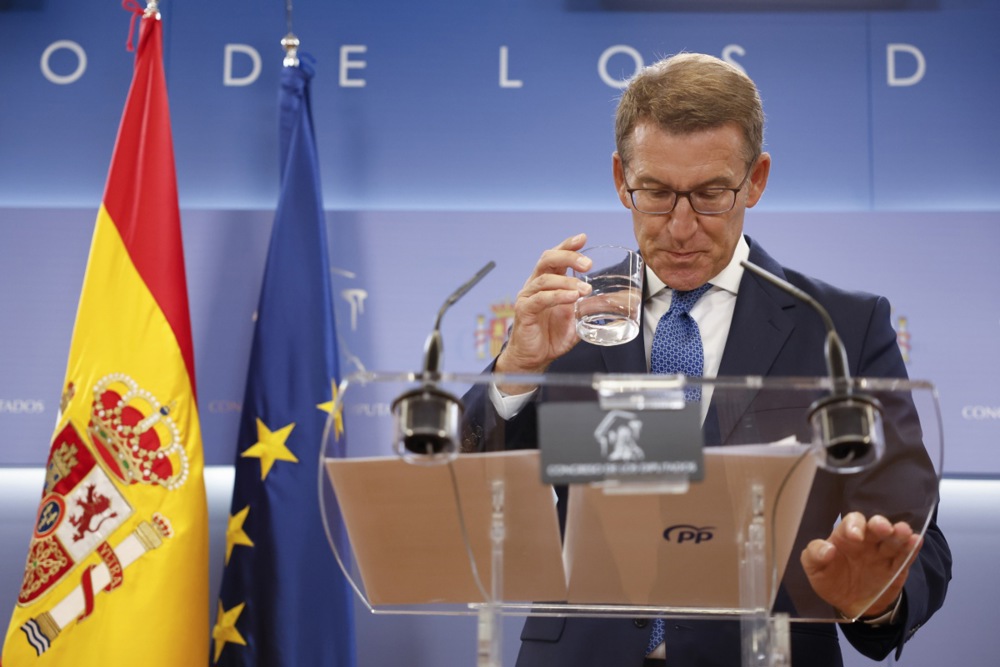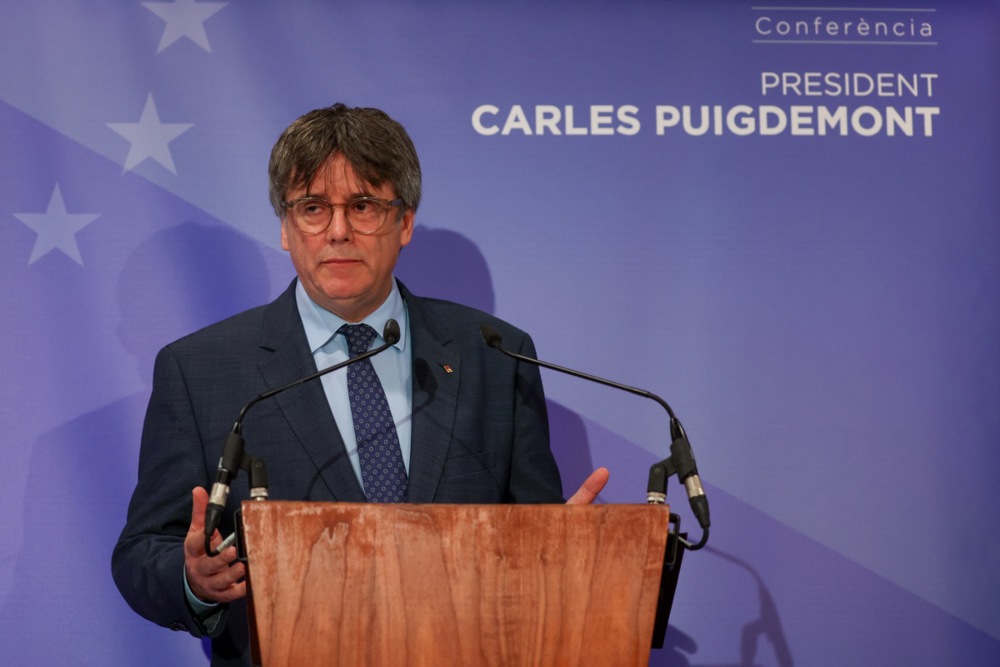Spanish Prime Minister Pedro Sánchez has rejected holding a self-determination referendum in Catalonia, saying it would be “unconstitutional”.
No constitution in the world allows for ceding part of its nation’s territory, Sánchez argued.
“It would be counterproductive for something we are all working toward: to turn the page after the fractures of times past,” he added. “The Socialist Party’s position has always been clear. The referendum does not fit within the Constitution”
Instead, the Spanish PM advocated for “a new age with stronger self-government” by the Generalitat, the Catalan Autonomous Community’s regional government.
Sánchez made the comments in a 21 December visit to Barcelona, in which he met with the region’s president, Pere Aragonès from the Esquerra Republicana (ERC) party.
Aragonès had argued for an independence referendum during the meeting, calling it the only solution to the “political conflict” between Catalonia and Madrid’s central government.
ERC has recently advocated the “Scottish Way” as a model for Catalonian independence. Scotland held an independence referendum in 2014, with 55.3 per cent of voters preferring to remain part of the United Kingdom.
Aragonès said he was confident Sánchez would eventually agree to a similarly legally-binding self-determination referendum.
The PM “used to disagree with the amnesty law,” he said at a press conference after their meeting.
Critics argued Sánchez’s statements contradicted his party’s pact with Carles Puigdemont’s Junts per Catalunya party that gave Sánchez sufficient votes in parliament to form a minority government with the left-wing Sumar coalition.
The agreement states Junts will propose holding a self-determination referendum, without specifying a timetable.
Sánchez’s Spanish Socialist Workers’ Party, in return, agreed to “respect the self-governing institutions and the institutional, cultural, and linguistic singularity of Catalonia”.
After the two parties signed the mid-November agreement, Puigdemont said “Junts makes clear in the agreement the legitimacy of the referendum in Catalonia and that is why the agreement contains the amnesty law.”
The Prime Minister also confirmed this week he will meet face-to-face with Carles Puigdemont, who currently lives in Belgium.
Sánchez will meet the fugitive Catalan leader “several times”, he said.
Sánchez is also set to meet with Oriol Junqueras, the ERC leader involved in the 2017 Catalan procés: an October 2017 independence referendum followed by a unilateral declaration of independence which the Madrid government described as a breach of the country’s constitution.
Sánchez pardoned Junqueras in 2021.
His meeting with Puigdemont is to take place after Congress approves a controversial amnesty law for Puigdemont and other separatists.
Sánchez also plans to push for major concessions for Catalan separatists. For example, his Socialist Party is expected to introduce a law “in defence of multilingualism”.
Alberto Núñez Feijóo, Spain’s leader of the opposition and president of the centre-right Partido Popular, is expected to voice concerns over the amnesty law and Basque separatists’ recent taking control of Pamplona in a meeting with Sánchez today.





